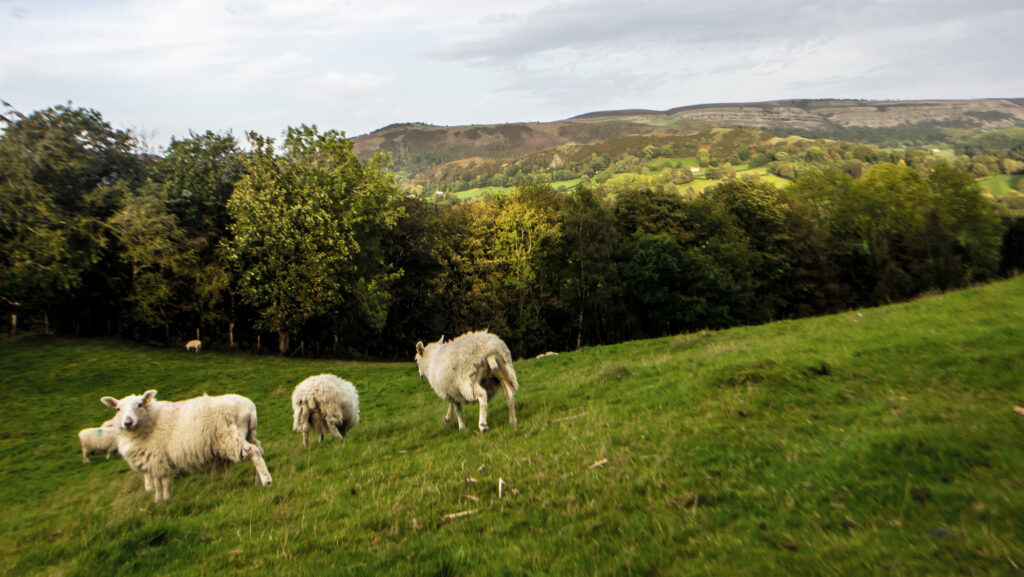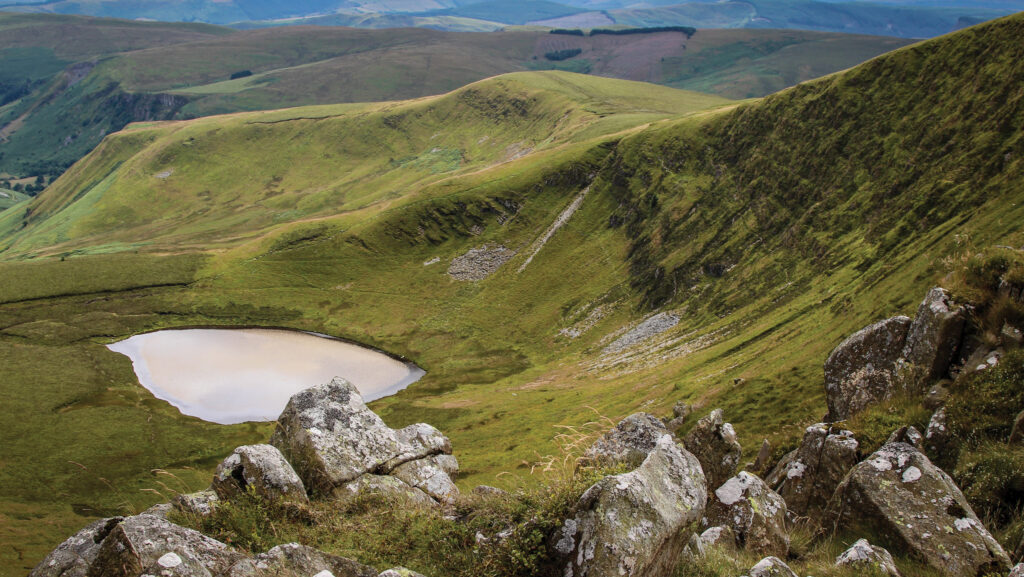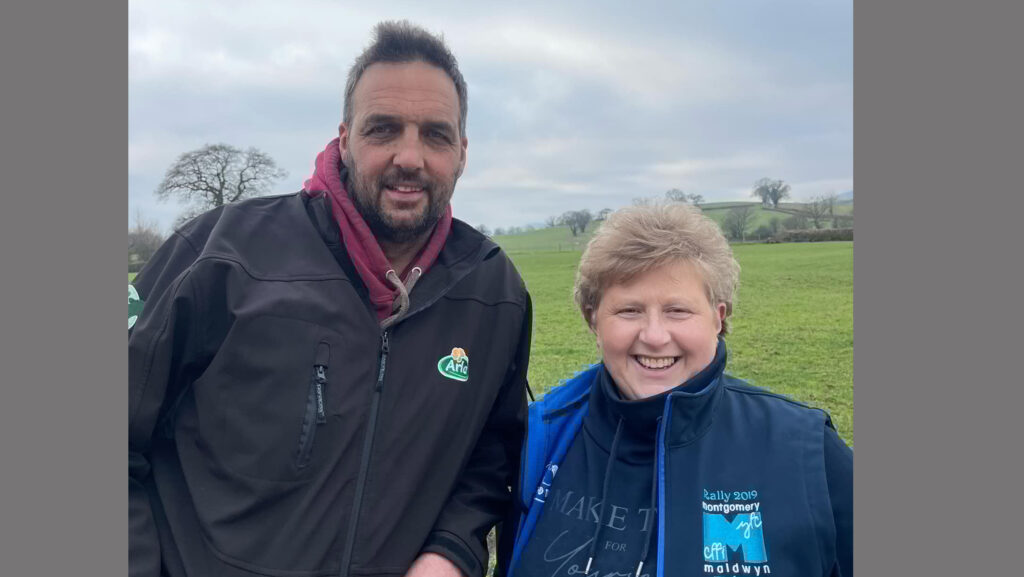Can Welsh farming afford another national park?
 © AdobeStock
© AdobeStock Plans to designate a new national park in north-east Wales have sparked grave concerns among farmers, who say their way of life is set to change for the worse if the proposal goes ahead.
Yet campaigners in favour say it would deliver great value to the area, protect and enhance natural assets, and stimulate the rural economy.
Both points of view – and others – were expressed in a 10-week consultation run by Natural Resources Wales (NRW), which closed just before Christmas 2024, attracting more than 2,000 responses.
See also: Extra time given to comment on Galloway National Park plan
Currently, Wales has three national parks – Bannau Brycheiniog (Brecon Beacons), Eryri (Snowdonia), and the Pembrokeshire Coast.
Together, they cover 20% of Wales – a far greater proportion compared with the national parks in England and Scotland.
Despite this, the Welsh government commissioned NRW to assess the case for another one, the first in Wales for over 60 years.
It is currently evaluating the Clwydian Range and Dee Valley to be designated a fourth national park and will make a recommendation based on feedback.
National park benefits
Among the various aims of national parks, conserving and enhancing the natural environment and protecting the cultural heritage rank highly.
There is also an ambition to promote public understanding of such matters and to foster their enjoyment.
As such, the Campaign for National Parks and the Alliance for Welsh Designated Landscapes, along with other supporters, believe this new proposed national park should be an exemplar for nature, climate and people.
The evidence, they say, is clear. The three existing national parks deliver great value to Wales, being distinctive and culturally significant.

Cadair Berwyn, the highest peak in north-east Wales © Aled-Hughes
They connect more communities to the landscape, enhance and improve the rural economy, and advance the wellbeing and climate ambitions of the Welsh government.
“The creation of a new national park in north-east Wales provides an important and timely opportunity to build on all that is best about our existing national parks,” says policy and projects officer at the Campaign for National Parks, Gareth Ludkin.
“It recognises the challenges of today and the opportunities to do some things differently, which could establish an exemplar national park for the UK.”
The challenge, says the campaign group, is to ensure that the range of outcomes and benefits that protected landscapes provide is not compromised by insensitive change, unsympathetic land use, or irresponsible development.
Farm union concerns
But the two farming unions in Wales have expressed grave concerns about the impact that such a designation, covering an area of around 150sq miles, could have.
While there may be benefits in terms of diversification opportunities and additional income, the risks in areas such as business development and farming practices far outweigh any possible gains.
NFU Cymru Clwyd county chairman, David Williams, says:
“Members within the proposed area are particularly concerned about the impact any new designation may have on the planning system, and the likely repercussions on farming families looking to invest in their business or undertake diversification projects.”
NFU Cymru believes the planning process must first and foremost recognise the strategic importance of food production.
The Farmers Union of Wales (FUW) agrees.
With the Sustainable Farming Scheme (SFS) on the horizon, many farmers are looking to the future and asking how their businesses might need to adapt in the coming years.
Burdensome regulation
Many see farm infrastructure upgrades and investments being a part of the transition process.
This is either to become compliant with new regulations or to improve resource efficiencies and environmental management on farms.
With planning processes often cited as a real problem by farmers working and living within national parks, the FUW says the regulations could be overly burdensome.
“There is significant concern that the proposals could introduce additional, onerous regulatory requirements, for planning and development, which could hinder the ability to adapt to future needs,” says FUW policy officer Gemma Haines.
The unions in Wales have also stressed that the “designation” of a site doesn’t guarantee an increase in biodiversity or an improvement in condition.
So, rather than considering further designations, more effort should be made to encourage a partnership approach to conservation.
This could be achieved through positive policies, such as agri-environmental schemes, says the FUW.
The SFS being designed by the Welsh government also has the potential to support farmers within the local area to conserve, protect and enhance the landscape.
Next steps
NRW is currently analysing the responses to the consultation and will make recommendations to the Welsh government in the autumn.
Beef and sheep farmer Glyn Roberts is a National Trust tenant farmer from Betws y Coed and a former FUW president.
He says it is vital that NRW gives full weight to the responses it has received from those farming within the area affected.
“It has been the case that people from outside an area get involved and they don’t have to live with the daily consequences of the changes this would bring to the local community,” he says.
Case study: What a National Park might mean for farmers

Hywel and Sarah Lewis © Sarah Lewis
Sarah Lewis farms with her husband, Hywel and son Iwan, at Parc Issa, on the outskirts of Llanrhaeadr ym Mochnant.
She is worried about what such a designation will mean for them.
The land they farm is set to be included in the new national park if plans go ahead.
The family runs a mixed enterprise, milking 200 dairy cows, and keeps 300 beef cattle and 450 Welsh mules.
In addition, Mrs Lewis runs a 16,000 bird free-range egg-laying enterprise. The farm holdings span across 182ha, including land near Newtown, in Powys.
They have already invested in a wind turbine, generating electricity for the farm.
They worry about their ability to continue developing the business and future-proof it for the next generation.
“We’re a progressive farm and we want to do what we do best – producing sustainable food,” says Mrs Lewis.
“For that, we need to be able to adapt and develop. Restrictions that come with a national park will make that either impossible or very costly.”
Local infrastructure
The Lewises are also concerned about the lack of amenities needed for national park designation.
An increase in tourist numbers to the area will necessitate extra toilets with disabled access, baby changing facilities, car parking, and readily available food and beverage outlets.
“The infrastructure we have here is not adequate for mass tourism,” says Mrs Lewis.
“We’ve seen the devastating impact large visitor numbers had during Covid, when day trippers inundated the waterfalls at Pistyll Rhaeadr.
“It had a major impact on the businesses in our community.
“Visitors didn’t spend money here with the butchers and cafés, but instead blocked the car parks so local people couldn’t get in. We haven’t got the facilities to cope.
“I see the issues with parking when I drive past the Storey Arms car park in the Brecon Beacons – rows and rows of cars parking along the trunk road. It’s a disaster.
“Why would it be any different here?”
Funding issues – a significant pressure point
National park authorities across Wales are already under significant budgetary pressures, opponents say.
They say that adding further legislation and administration costs by creating another national park may not be justified.
The local authorities within the proposed area already face significant budget shortfalls and need to find savings, not take on extra spending.
Powys County Council, for example, needs to reduce expenditure by £51m in the next four years.
Denbighshire County Council is faced with a funding gap of £21m. Gwynedd County Council anticipates a deficit of £17.4m over the next three years.
NRW is also suffering from budgetary cutbacks and resourcing issues, too.
“These proposals [for a new national park] could contribute to the scaling back of other local authority services and could lead to an increase in council taxes,” says the FUW’s Gemma Haines.
“None of these outcomes are acceptable. Local communities and the wider economy could suffer because of these proposals.”
Financial support
However, Gareth Ludkin of the Campaign for National Parks says the solution to some of these concerns lies with the creation of a new national park authority.
“A new authority would be a force for change, bringing resources and people together to create green jobs and stimulate rural investment,” he says.
A new public body could focus on conserving and enhancing wildlife, natural beauty, cultural heritage and public enjoyment.
This would bring a step-change to the proposed area of north-east Wales, he says.
“It would enable far greater action than is possible when local councils are stretched so thin.”
Mr Ludkin also draws attention to the financial help that is available to farmers in a designated area.
“The national park authorities in Wales have a track record of managing funds and working with farmers to conserve and enhance the landscape, including new funding for stone wall and hedgerow restoration, field margin habitat creation, and other nature-friendly farming practices,” he says.
Farmers in Welsh national parks are also set to receive support and funding in 2025.
The Welsh government announced the development of Ffermio Bro: Farming in Designated Landscapes.
